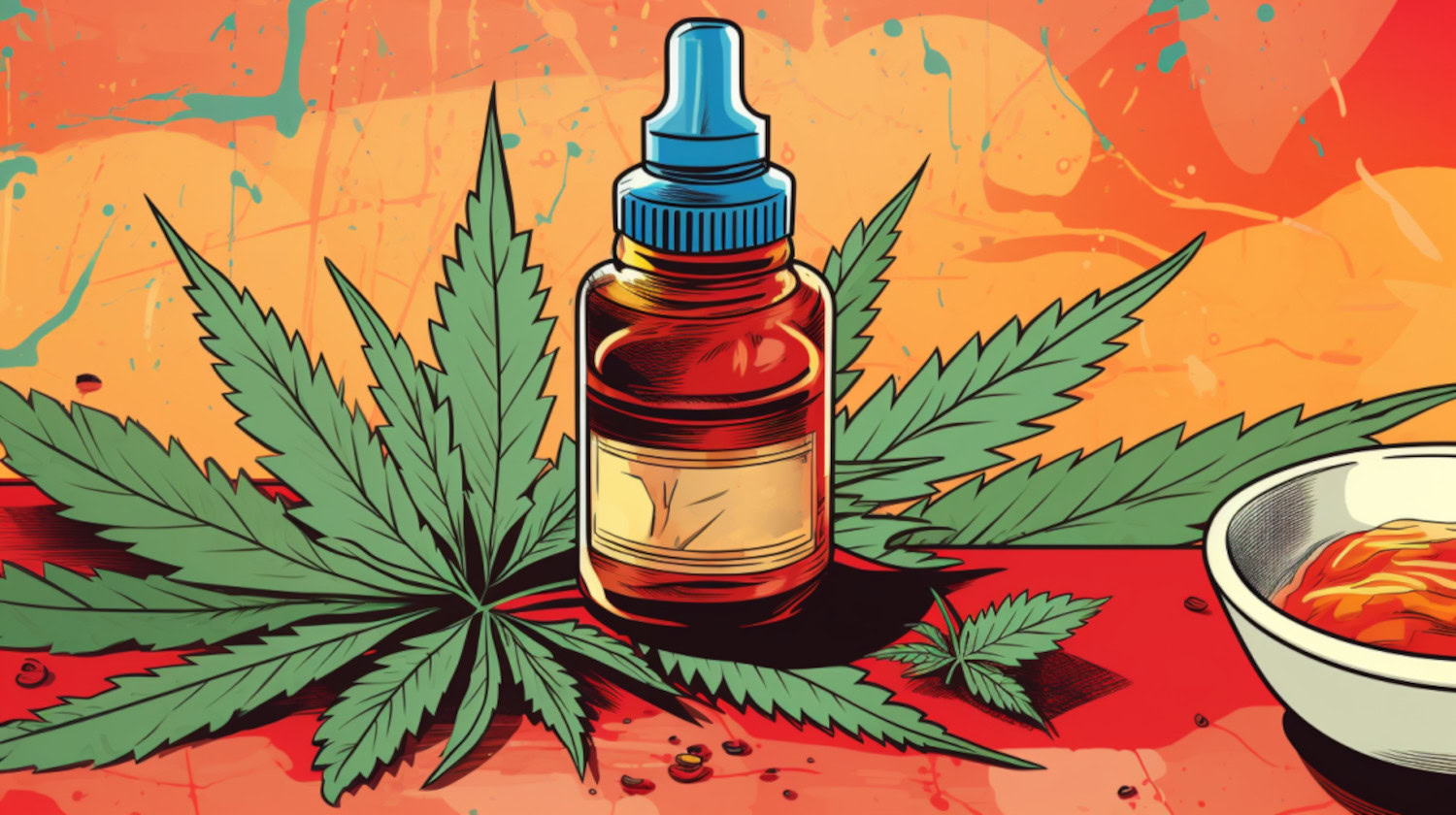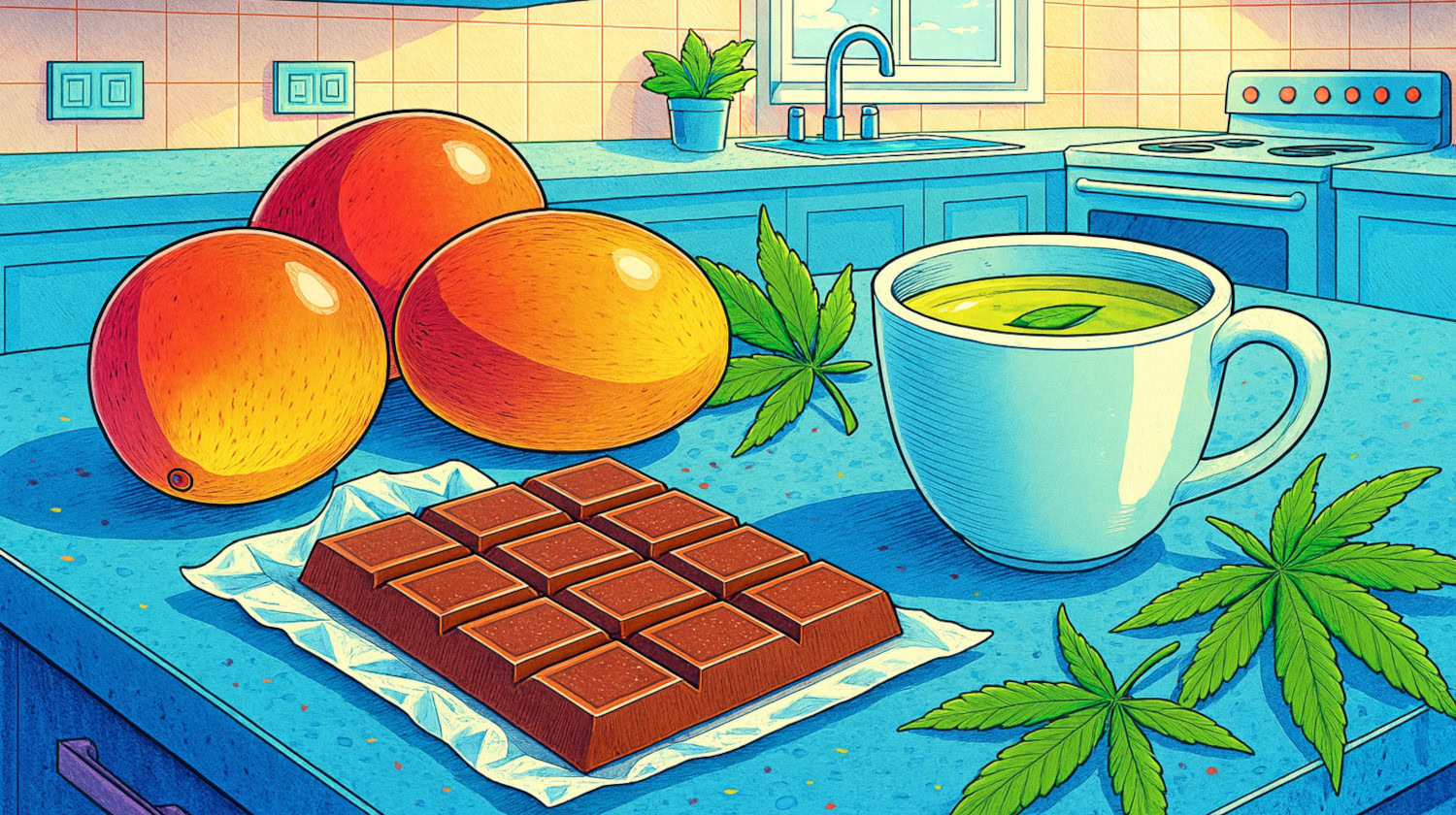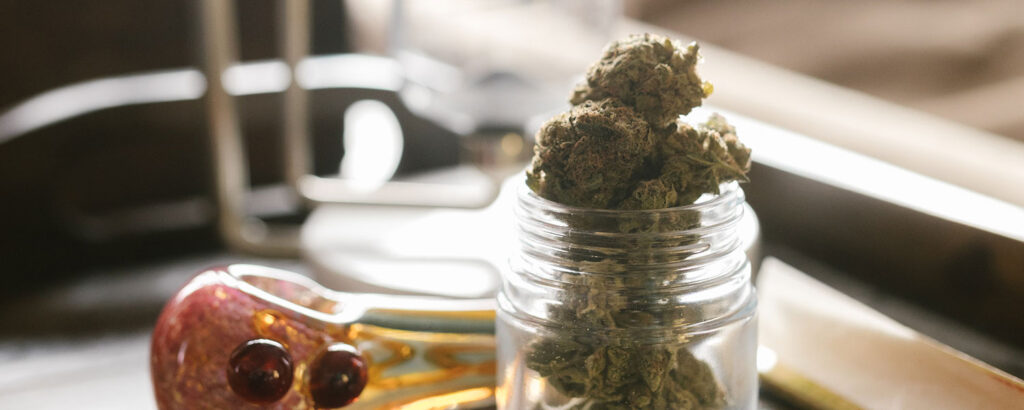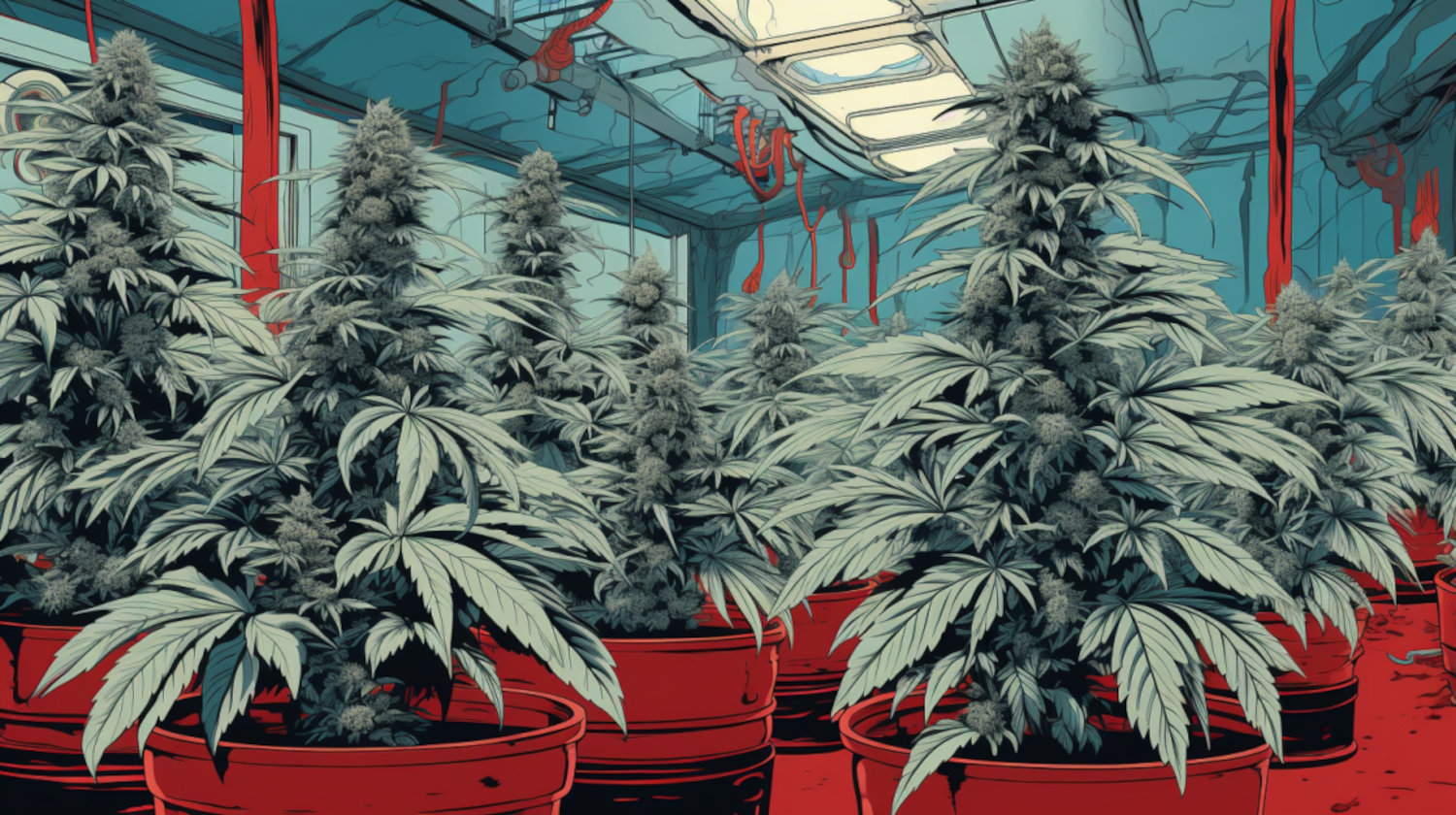Key Takeaways
- Both CBD and THC are cannabinoids that interact with the body’s endocannabinoid system.
- CBD is chemically different from THC and interacts with the body differently, so it cannot cause the same intoxicating effects.
- Unless they contain THC or another chemical, there aren’t any forms of CBD that will get you high.
THC and CBD are the two most prevalent cannabinoids in cannabis. High-THC cannabis plants are recognized for their intoxicating effects, commonly referred to as a "high." In recent years, cannabidiol (CBD) has gained significant consumer interest as an over-the-counter option in most US states. Today, a number of adults are using CBD as part of their wellness regimen, and numerous more are interested in trying it for various wellness reasons.
In many cases, CBD products will contain trace amounts of THC, leading some to potentially have concerns about whether it can create the same “high” effect as smoking or ingesting THC. Novice consumers wonder: Can CBD get you high?
What is CBD?
Before exploring CBD more in-depth, it's important to understand what cannabinoids are.
“Cannabinoids, broadly speaking, are a class of biological compounds that bind to cannabinoid receptors,” explained Augusta University Researchers Nafiz K. Sheikh and Anterpreet Dua in their 2024 report on cannabinoids. “They are most frequently sourced from and associated with the plants of the Cannabis genus.”1
Cannabinoids are one of several compound types found inside cannabis strains, otherwise known as cultivars. Unlike the plant variety, naturally occurring cannabinoid compounds in the body are described as endogenous cannabinoids or endocannabinoids. The human body naturally produces chemicals called endocannabinoids, namely 2-AG and anandamide. A vast network of endocannabinoids and receptors are found throughout the body and play a crucial role in maintaining many of the body’s core functions.
Cannabinoid receptors like CB1 and CB2 are found throughout the brain and body to help regulate the brain and immune system activity and can be influenced in various ways by the body's endocannabinoids or plant cannabinoids like THC.2
THC is a partial agonist for both the CB1 and CB2 receptors, binding to these receptors and creating various effects. The results vary depending on the chemovar and its plant profile makeup. However, the primary shared bond across all THC strains is that it will create the intoxicating effects that are associated with the plant.
CBD does not act in the same manner, as it has a low binding affinity for the CB1 receptors. With CBD lacking a strong binding affinity for the CB1 receptors in the brain, the cannabinoid does not create the intoxicating effects linked with THC.3 This result remains the same, even when consuming high-CBD strains.
However, that does not mean CBD cannot produce significant effects. The cannabinoid is capable of affecting the body in numerous ways, including:
- Modulating the production of neurotransmitters like serotonin and GABA, potentially playing a role in the anti-depressive, anti-anxiety, and anti-psychotic effects of CBD
- Inhibiting the breakdown of endocannabinoids like anandamide, which may help influence sleep.
- Inhibiting the growth of tumors through the TRPV channels.
- Regulates pain through the CB1, CB2, and GPR2 receptors.4
Does CBD Get You High?
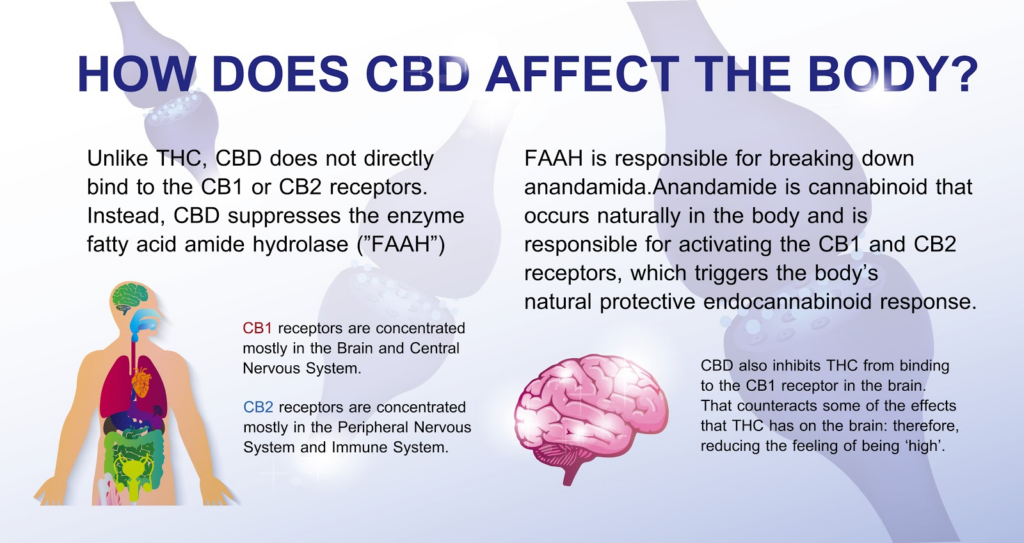
The two most prevalent compounds found in cannabis interact with the body in significantly different ways. THC is regarded for its intoxicating high, created by binding to the body's CB1 receptors in the brain as a partial agonist at the orthosteric binding site, which is the receptor's active site.
That isn't the case with CBD, which does not bind as strongly to CB1 receptors as it binds at the allosteric site, which is anywhere else on the receptor. This is the core reason why the answer is no when anyone asks, "Can CBD get you high?"
CBD interacts with various receptors and neurotransmitters, creating multiple beneficial effects. However, an intoxicating high is not one of them. Documented potential clinical effects of CBD include:
- Anticonvulsant
- Anti-anxiety
- Anti-depressant
- Antipsychotic
- Pain relief
- Sedation4
In contrast to THC, CBD does not produce acute effects on motor or cognitive functions. Also, unlike THC, CBD does not appear to affect pulse rate or blood pressure significantly.
"Functional neuroimaging studies have confirmed the neurophysiological effects of THC and CBD are distinct and opposite,'' wrote one study on the effects of a single oral dose of THC and CBD.3
Does CBD Oil Get You High?
CBD oil is a popular type of product derived from the cannabis plant and formulated using various methods, creating product options marked by distinct cannabinoid profiles. Despite their differences, one assertion is shared by all CBD oil products: they won't get you high.
CBD comes in three types of oil formulations:
- Full Spectrum: Full spectrum CBD oil contains all or as much of the plant compounds that could be extracted, including 0.3% or less THC. Full-spectrum CBD dominant products are also available in the legal adult-use or medical markets, but often contain much higher levels of THC. Research has suggested that full-spectrum CBD might be more effective due to its synergistic combination of all the plant's compounds, often called the entourage effect.5
- Broad Spectrum: Broad spectrum oil contains some or most of the whole plant profile, with THC removed from the equation.
- Isolate: Isolate is a white powdery substance created through various extraction methods. It reduces the whole plant profile down to a singular compound of pure CBD. The powder is introduced into a substance such as MCT or hemp seed oil to create a CBD isolate oil similar in appearance to full and broad-spectrum products.6
Even though full-spectrum CBD oil is capped at 0.3% THC, reports of mislabeling have plagued the industry for years. This means that the dosage on the package may not be as accurate as one would hope.7 As such, only buy from reputable producers with a valid license and ample positive consumer feedback.
Do CBD Gummies Get You High?

Gummies of any cannabinoid variety are a unique experience for cannabis consumers. Once ingested, cannabis compounds travel through the digestive process before being metabolized in the liver into a potent, intoxicating compound. The process creates elevated effects when compared to smoked and vaped options.8
Despite the pronounced effects of THC gummies and edibles, that isn't the case with CBD. Regardless of the consumption method or dose, CBD will not bind to the CB1 receptors as needed to create a high effect. While full-spectrum CBD edibles will contain trace amounts of THC, the amount is typically not enough to induce intoxicating effects in most cases. However, companies are using a loophole in the 2018 Farm Bill that allows for 0.3% total THC by weight in a product, so they are making the gummies larger in order to add more THC to the product.
Avoid any unwanted outcomes by reading labels carefully before consuming. If you're still worried about getting high from a CBD edible, consider buying an option made from broad-spectrum or isolate CBD.
Can You Get High from CBD Flower?
Many enjoy the benefits of smoked CBD flower, citing numerous benefits and effects. Similar to other forms of CBD, no “high” is felt since CBD does not bind to critical receptors in the brain like THC does.3,9 Still, anyone looking for rapid effects from CBD should consider smoking CBD flower. Smoking cannabis delivers effects to the consumer quickly, often in minutes.
While THC and CBD flower are identical to the naked eye, their cannabinoid profiles create two vastly different legal scenarios. High THC cannabis strains, or any strains containing more than 0.3% THC, are illegal under US federal law. Items may also be subject to prohibition at the state level.
On the other hand, high CBD strains, such as Charlotte's Web and Sour Space Candy, are legal. These options often contain higher levels of CBD than strains of previous generations. Despite their elevated CBD, these strains remain federally compliant by ensuring that their product contains 0.3% THC or less.
High CBD low THC strains may offer a non-intoxicating therapeutic option for consumers seeking medical and everyday relief without getting intoxicated. High CBD strains are often appealing to the medical community.
Can CBD Counteract the High from THC?

For years, researchers and everyday consumers have claimed that CBD can lessen or otherwise diminish the effects of THC. Current research indicates that the results are mixed, throwing the accuracy of the claim into further debate.10,11
Studies into the oral bioavailability of CBD, or the amount of CBD that enters the bloodstream when consumed orally, reveal that full- or broad-spectrum products increase the amount reaching the blood. Such a conclusion suggests that doses containing CBD and THC offer more effectiveness.5 Proponents of the entourage effect often support this, believing that the plant is most effective when all its compounds work together.
So, how can the compounds work together if CBD diminishes the effects of cannabinoids like THC? At this time, researchers have yet to answer that puzzle fully.
While several studies conducted just a few years ago claimed that CBD can offset the effects of THC, more recent analyses have found no significant evidence of intoxicating changes. One study encountered no evidence connecting CBD to a reduced impact on THC's cognitive or mental health effects. Similarly, the study did not find that CBD altered the effects of THC at doses commonly found in recreational and medicinal cannabis products. Even at larger doses, CBD showed no indication of lessening or awakening THC’s intoxicating effects.12
How to Make Sure You Don’t Get High from CBD
It is pretty simple to ensure that you enjoy the benefits of CBD without feeling intoxicating effects. To verify that you receive a quality product, it is recommended that you purchase CBD from legal, reputable manufacturers in the United States.
When shopping for CBD, be sure to do the following:
- Read the Label: Make sure the label contains all the essential information about the CBD product's contents and the brand. Understanding the product and the company behind it is a crucial first step to ensuring you're buying the ideal product for your needs. Before purchasing, confirm if the product formulation and other ingredients align with your wellness regimen.
- Check the Ratio: Understand the product's weight and how much THC each consumption method is allowed to contain. Legal CBD products can contain up to 0.3% THC in flower and 2.5 mg of THC per edible serving, depending on the edible weight. Products may contain varying ratios, which alter the dosage of cannabinoids and, thus, the effects of the product.
- Check the Certificate of Analysis. Buy products that are third-party tested by ISO-17025-certified labs. This ensures that the CBD product has been scrutinized and assessed at every production stage by leading labs in the space. Consider shopping with another brand if a company cannot provide these facts.
Buying CBD may seem simple, but don't assume that every product is the same. While the market has continued to improve and offer a growing number of lab-tested CBD products, some improper actors and poorly formulated products still exist. Whether overinflating their THC percentages, not fully clearing the contaminants from the final product, mislabeling, or otherwise, consumers need to be aware of what they put in their bodies.7,13
What to Do If You Feel High from CBD

Remember that CBD is non-intoxicating, meaning you should not feel high after consuming CBD products. If you do feel yourself experiencing intoxication or elevated effects, you may be dealing with something other than CBD, or there were higher levels of THC than expected or reported. No matter the cause, do your best to stay calm and consider the following options:
- Hydrate: Drinking water may help your body dilute THC content faster
- Rest: Sit or lie down in a comfortable, safe setting where you can relax and ride out any unwanted effects
- Reach Out for Support: Talk to a friend or loved one if you feel ill effects. In some rarer cases, medical attention may be needed. Anyone who thinks they are in such a situation can call a local or regional poison control center (1-800-222-1222). Other options include calling 911 or seeking medical attention at a local emergency room.
References
- Sheikh NK, Dua A. Cannabinoids. In: StatPearls [Internet]. StatPearls Publishing; 2023. https://www.ncbi.nlm.nih.gov/books/NBK556062/ ↩︎
- Lu HC, Mackie K. Review of the Endocannabinoid System. Biol Psychiatry Cogn Neurosci Neuroimaging. 2021 Jun;6(6):607-615. doi: 10.1016/j.bpsc.2020.07.016. Epub 2020 Aug 1. PMID: 32980261; PMCID: PMC7855189. ↩︎
- Martin-Santos R, Crippa JA, Batalla A, et al. Acute effects of a single, oral dose of d9-tetrahydrocannabinol (THC) and cannabidiol (CBD) administration in healthy volunteers. Current pharmaceutical design. 2012;18(32):4966-4979. doi:https://doi.org/10.2174/138161212802884780 ↩︎
- Peng J, Fan M, An C, Ni F, Huang W, Luo J. A narrative review of molecular mechanism and therapeutic effect of cannabidiol (CBD). Basic & Clinical Pharmacology & Toxicology. 2022;130(4):439-456. doi:https://doi.org/10.1111/bcpt.13710 ↩︎
- Berthold EC, Kamble SH, Siva, et al. Comparative Pharmacokinetics of Commercially Available Cannabidiol Isolate, Broad-Spectrum, and Full-Spectrum Products. European Journal of Drug Metabolism and Pharmacokinetics. 2023;48(4):427-435. doi:https://doi.org/10.1007/s13318-023-00839-3 ↩︎
- Cather JC, Cather JC. Cannabidiol primer for healthcare professionals. Proc (Bayl Univ Med Cent). 2020;33(3):376-379. Published 2020 Jul 6. doi:10.1080/08998280.2020.1775437 ↩︎
- Li J, Carvajal R, Bruner L, Kaminski NE. The current understanding of the benefits, safety, and regulation of cannabidiol in consumer products. Food Chem Toxicol. 2021;157:112600. doi:10.1016/j.fct.2021.112600 ↩︎
- Chayasirisobhon S. Mechanisms of Action and Pharmacokinetics of Cannabis. Perm J. 2020;25:1-3. doi:10.7812/TPP/19.200 ↩︎
- Spindle TR, Cone EJ, Goffi E, et al. Pharmacodynamic effects of vaporized and oral cannabidiol (CBD) and vaporized CBD-dominant cannabis in infrequent cannabis users. Drug Alcohol Depend. 2020;211:107937. doi:10.1016/j.drugalcdep.2020.107937 ↩︎
- Laprairie RB, Bagher AM, Kelly ME, Denovan-Wright EM. Cannabidiol is a negative allosteric modulator of the cannabinoid CB1 receptor. Br J Pharmacol. 2015;172(20):4790-4805. doi:10.1111/bph.13250 ↩︎
- Haney M, Malcolm RJ, Babalonis S, et al. Oral Cannabidiol does not Alter the Subjective, Reinforcing or Cardiovascular Effects of Smoked Cannabis. Neuropsychopharmacology. 2015;41(8):1974-1982. doi:https://doi.org/10.1038/npp.2015.367 ↩︎
- Englund, A., Oliver, D., Chesney, E. et al. Does cannabidiol make cannabis safer? A randomised, double-blind, cross-over trial of cannabis with four different CBD:THC ratios. Neuropsychopharmacol. 2023;48,869–876. https://doi.org/10.1038/s41386-022-01478-z ↩︎
- MacCallum CA, Lo LA, Pistawka CA, Boivin M. A Clinical Framework for Evaluating Cannabis Product Quality and Safety. Cannabis Cannabinoid Res. 2023;8(3):567-574. doi:10.1089/can.2021.0137 ↩︎
The information in this article and any included images or charts are for educational purposes only. This information is neither a substitute for, nor does it replace, professional legal advice or medical advice, diagnosis, or treatment. If you have any concerns or questions about laws, regulations, or your health, you should always consult with an attorney, physician or other licensed professional.

